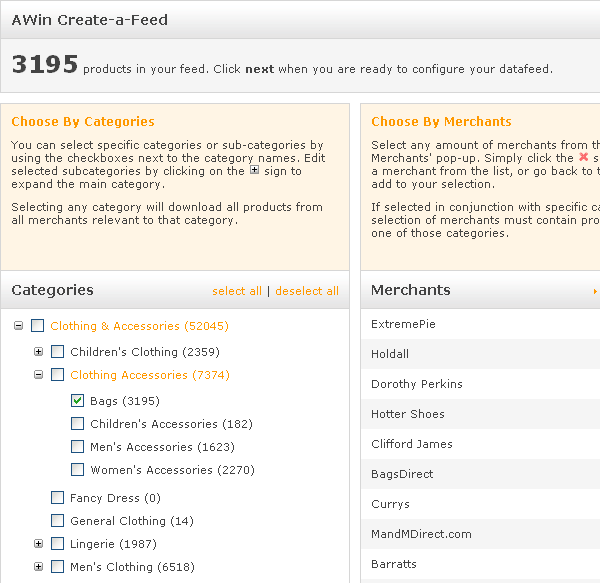The Top UK Affiliate Networks
 Following on from my two articles on affiliate networks titled ‘Part 1: What Are Affiliate Networks & Should I be using Them?‘ and the continuation in ‘Part 2: What Are Affiliate Networks & Should I be using Them?‘ today I’ll be covering who the top affiliate networks are in the UK, who’s with them and which one you might want to choose for your affiliate campaign.
Following on from my two articles on affiliate networks titled ‘Part 1: What Are Affiliate Networks & Should I be using Them?‘ and the continuation in ‘Part 2: What Are Affiliate Networks & Should I be using Them?‘ today I’ll be covering who the top affiliate networks are in the UK, who’s with them and which one you might want to choose for your affiliate campaign.
There are about a dozen different affiliate networks that operate in the UK, this list is not exhaustive, but are networks I can vouch for through personal experiences. In no particular order these are:
 AffiliateWindow
AffiliateWindow
Also known as” AWIN”, they have the widest ranging set of affiliates programmes I know of. They are also the most expensive from what I know of too.A company I recently dealt with was quoted £2500 and an on going monthly price of around £500 per month, plus commission on paid commissions too.Affiliate Window is in the process of updating their backend to ‘Darwin’ which is a welcome improvement in eye candy, but not entirely sure about functionality. The a short list of merchants using them can be found here and clicking on “Our Merchants”.
 Buy.at
Buy.at
Now this is being listed as a separate affiliate network, but they were bought by Digital Window (AKA Affiliate Window) in March 2010.My dealings are only ‘light’ with Buy.at, but they do house some of the much larger clients, names like Very, 3 Mobile, All Saints, BBC Shop, ASDA, BT and so on. I have no idea on pricing for these, but I am guessing its more than AWIN. Webgains.
Webgains.
Webgains are a personal favourite of mine, these were the first affiliate network I joined (as an affiliate, not a merchant) and have used them ever since, while lacking on some of the big names, this team have a large array of merchants and they really know their salt.Pricing is much more affordable, in the region of £1000 setup fees and a monthly charge of ~£250 plus commission’s. Trade Doubler
Trade Doubler
I use TradeDoubler for some clothing suppliers as an Affiliate, this is not their strength but it still brings the pennies in each month. From a Merchants perspective, TD tend to lean towards betting, consumer electronics & holidays. I have no idea on pricing for these either.Trade Doubler’s current client list can be found here, if you were focusing on the EU, then these would be my first suggestion, see here for why. PaidOnResults
PaidOnResults
Absolutely no idea on these, other than I know several high profile affiliates use them to great effect. When someone mentions them, I do immediately think of children’s toys and lingerie, what a wacky combination. Anyway, a list of their merchants can be found here. AffiliateFuture
AffiliateFuture
These are of a holidays & flights network, although I did pick up a few feeds for clothing and footwear from them (shoes.co.uk was one). Their client list is here and again I’m unable to comment on their fee structure for merchants. Commission Junction
Commission Junction
eBay used these before they developed their own platform (or skinned someone elses[?]), slightly more American and has a reliance upon banner ads than data.Its extremely corporate and I suspect the merchant fees reflect this. This would be only my suggestion if you are actively targeting the US because of their coverage there. I spoke with their UK Sales manager a while back, while the client did not use them, the was very helpful.
You may be wondering why I have left out the eBay and Amazon affiliate programmes, this is because they are not website orientated, all of the networks above are.
This article should have brought you up to date on some of the UK affiliate networks that are available and that I’ve given you a first hand impression of each. Whoever you choose, work hard at it!






